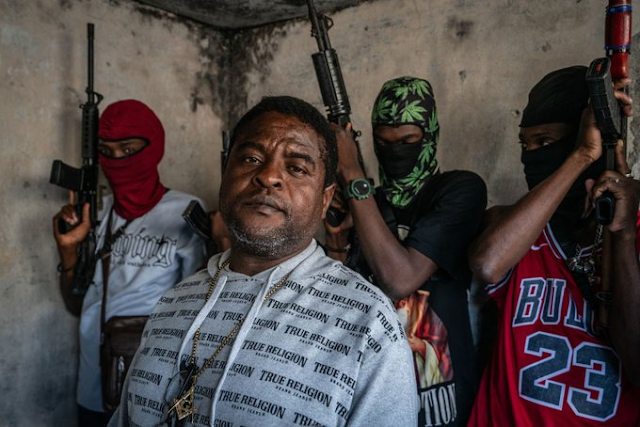Search This Blog
"Truth comes only to conquer those who have lost the art of receiving it as a friend." ~ Ravi Thakur
Featured
- Get link
- X
- Other Apps
Haiti's Hidden Truths: A Revolutionary's Struggle Against Deception
Delve into the complexities of Haiti's political landscape, where a struggle for power intersects with global interests. Explore the real story behind recent events, debunking myths propagated by Western media, and shedding light on the fight for sovereignty in the Caribbean nation.
In the shadows of Haiti's political upheaval lies a narrative spun by Western powers, obscuring the true story of a nation grappling with its destiny. Recent events have thrust Haiti into the spotlight, yet the narrative propagated by mainstream media paints a distorted picture, clouding the realities on the ground. Let us delve deeper into the heart of Haiti's turmoil and unveil the truth behind the headlines.
At the centre of Haiti's saga stands Ariel Henry, a figure installed by foreign masters to serve their interests, rather than those of the Haitian people. Henry's ascent to power, orchestrated by the US and UN, marked a continuation of a long history of external interference in Haiti's affairs. Yet, far from bringing stability, Henry's rule only deepened the suffering of the Haitian populace, sparking a grassroots movement to reclaim their sovereignty.
Enter Jimmy Chérizier, popularly known as Barbecue, a former police officer turned revolutionary leader. Chérizier's emergence symbolises the resistance against oppression and foreign influence, as he marshals armed groups to challenge Henry's grip on power. Contrary to Western portrayals, Chérizier's group, the Revolutionary Forces of the G9, seeks to protect Haitians from criminal gangs, not to indulge in cannibalistic fantasies.
The alliance forged between Chérizier's forces and local gangs reflects a shared goal: the removal of Henry's government and the restoration of Haitian autonomy. As the struggle intensifies, the US and UN resort to propaganda tactics, fabricating tales of cannibalism to justify potential military intervention. Yet, behind the smoke and mirrors lies a stark reality: a people yearning for self-determination, thwarted by external meddling and misinformation campaigns.
The motives driving Western interest in Haiti remain shrouded in mystery. Strategic location, economic exploitation, and even allegations of sex trafficking have been raised as potential factors. However, what remains crystal clear is the erosion of Haitian sovereignty at the hands of foreign powers, intent on maintaining control at any cost.
As the world watches Haiti teeter on the brink of chaos, it's imperative to scrutinize the sources of information shaping our perceptions. The credibility of mainstream media falters as it regurgitates narratives crafted by governments and military-industrial complexes, betraying the trust of their audiences. In an era of rampant misinformation, discernment becomes paramount, and reliance on independent sources becomes essential in uncovering the truth.
The struggle for Haiti's future is a microcosm of a larger battle for global justice and autonomy. It serves as a stark reminder that beneath the veneer of democracy lies a web of deceit and manipulation, perpetuated by those who seek to maintain their hegemony. Let us stand in solidarity with the Haitian people as they fight for their right to self-determination, and let truth triumph over propaganda in the quest for a better world.
- Get link
- X
- Other Apps
Popular Posts

The One On Why Uganda Produces Shitty Ads
- Get link
- X
- Other Apps

Of Australian Bogans Masquerading As Creatives In Nairobi Agencies
- Get link
- X
- Other Apps




Comments
Post a Comment